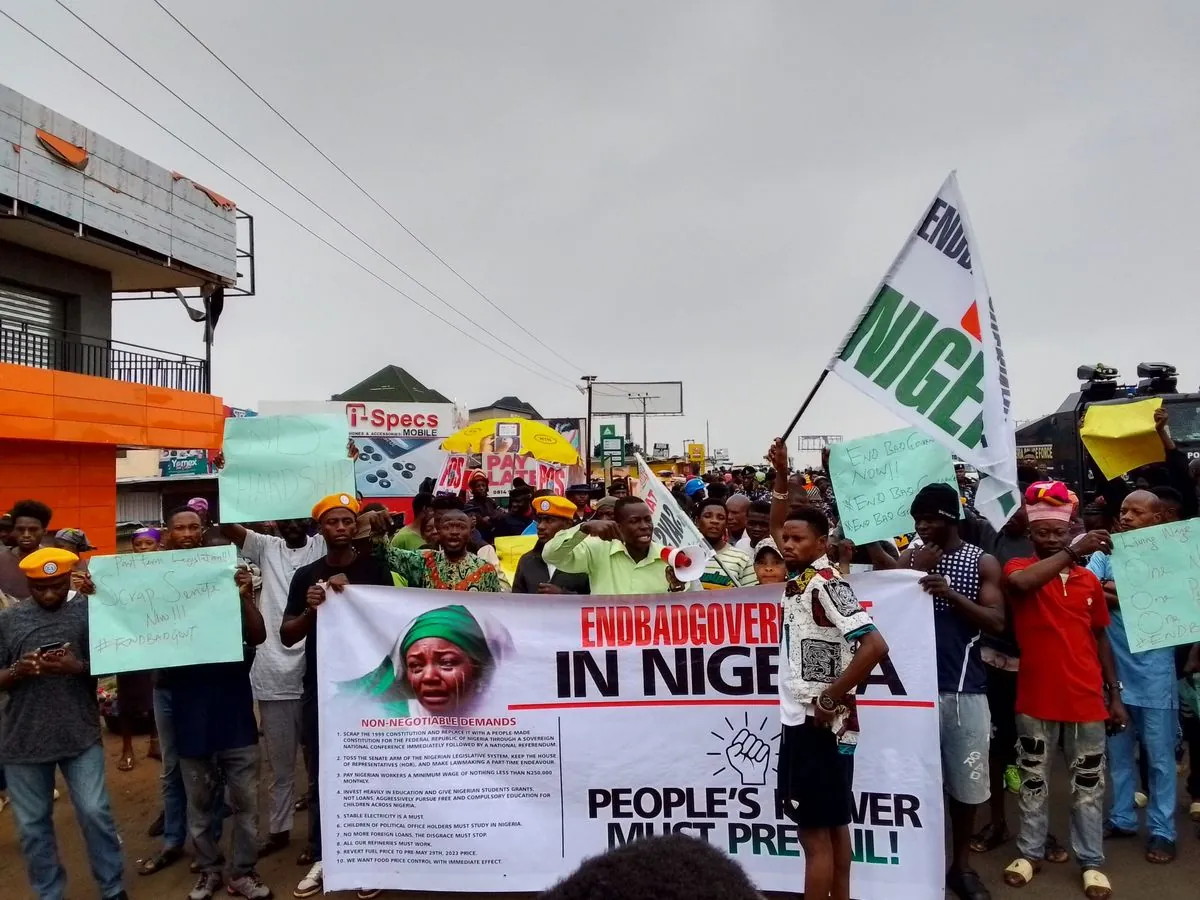Nigeria's Independence Day Marred by Economic Protests
On Nigeria's 64th Independence Day, citizens protested economic hardships amid government reforms. President Tinubu called for patience as the country grapples with high inflation and currency devaluation.

On October 1, 2024, Nigeria marked its 64th year of independence from British rule amidst economic turmoil and public discontent. The West African nation, known for its vast oil reserves and vibrant cultural diversity, witnessed demonstrations across several states as citizens voiced their frustrations over economic hardships.
Protesters, primarily young Nigerians, took to the streets waving the national flag and carrying placards demanding improved job opportunities and better living conditions. This unrest comes at a time when Nigeria, despite being Africa's largest oil producer and boasting the continent's biggest economy by GDP, grapples with some of the world's highest poverty and hunger rates.
The demonstrations represent the second major protest in two months, highlighting the growing dissatisfaction with government policies. In August 2024, a similar protest resulted in tragic consequences, with at least 20 demonstrators reportedly losing their lives and hundreds facing arrest.

Law enforcement agencies responded to the current protests with force, deploying tear gas to disperse crowds in some areas, including the capital city of Abuja. This heavy-handed approach echoes previous incidents, such as the 2020 protests against police brutality in Lagos, which also saw violent crackdowns.
The root of public discontent lies in recent government reforms aimed at bolstering the economy and attracting foreign investments. However, these measures have had unintended consequences, pushing inflation to a 28-year high and causing the naira to plummet against the dollar. These economic challenges are particularly burdensome for Nigeria's young population, with a median age of about 18 years.
President Bola Tinubu, who assumed office in May 2023 on a platform of "renewed hope," defended the controversial reforms in a national broadcast. He asserted that the policies were already yielding positive results, citing $30 billion in foreign direct investments over the past year. In an attempt to address youth concerns, Tinubu announced plans for a national youth conference to gather recommendations on key national issues.
"Once again, I plead for your patience as the reforms we are implementing show positive signs, and we are beginning to see light at the end of the tunnel."
Despite the government's optimism, many Nigerians continue to struggle with daily challenges. The country's persistent issues in education and healthcare sectors further compound the economic difficulties. Cheta Nwanze, a managing partner at SBM Intelligence research firm in Lagos, described Nigeria as "an unfortunate case of running very hard and staying in the same place."
As Nigeria navigates these turbulent times, it's worth noting the country's rich potential. With over 250 ethnic groups, a thriving film industry (Nollywood), and a burgeoning tech startup ecosystem, Nigeria possesses the ingredients for success. However, realizing this potential requires addressing fundamental issues such as corruption, security challenges like the Boko Haram insurgency, and improving infrastructure.
The ongoing protests serve as a stark reminder of the challenges facing Africa's most populous nation as it strives to fulfill the promises of independence declared 64 years ago. As Nigeria moves forward, balancing economic reforms with the immediate needs of its citizens remains a critical challenge for the government to address.


































